12 animals whose names etymologically describe them
Armadillo means "little armored one," because of course it does


A free daily email with the biggest news stories of the day – and the best features from TheWeek.com
You are now subscribed
Your newsletter sign-up was successful
1. PORPOISE, "PIG FISH"
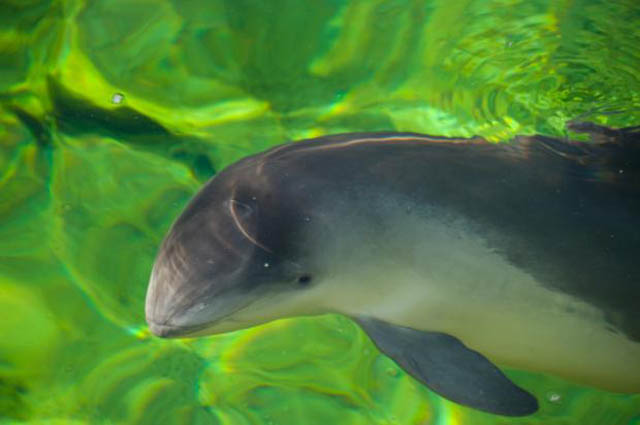
The word porpoise can be traced to Latin porcopiscis, from the combination of porcus (pig) with piscis (fish). Round body, flat nose — sure, that makes sense.
2. AARDVARK, "EARTH PIG"
The Week
Escape your echo chamber. Get the facts behind the news, plus analysis from multiple perspectives.

Sign up for The Week's Free Newsletters
From our morning news briefing to a weekly Good News Newsletter, get the best of The Week delivered directly to your inbox.
From our morning news briefing to a weekly Good News Newsletter, get the best of The Week delivered directly to your inbox.
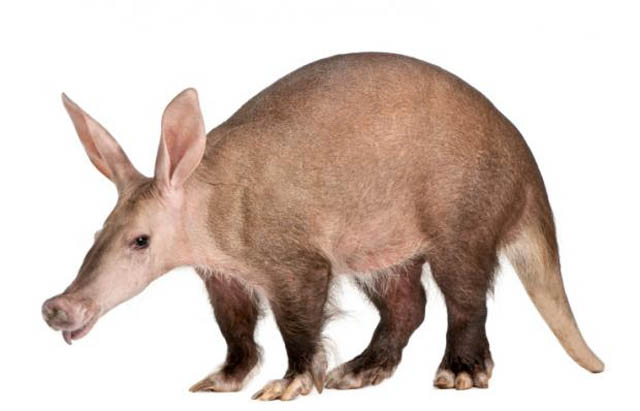
When you're not sure what it is, go with pig. Afrikaans, the offshoot of Dutch which is spoken in South Africa, gave us aardvark, from Dutch aarde (earth) + varken (pig). Must have been the nose and the pink skin.
3. PORCUPINE, "THORNY PIG"
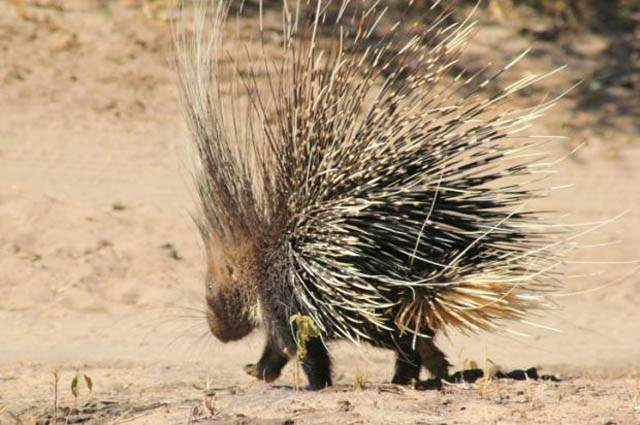
Pig is such a versatile animal. When in doubt, go with pig! Porcupine comes from the Middle French porc (pig) + espin (from Latin spina, thorn). A thorny, spiky, pig. Well, it is round…
4. HIPPOPOTAMUS, "RIVER HORSE"
A free daily email with the biggest news stories of the day – and the best features from TheWeek.com
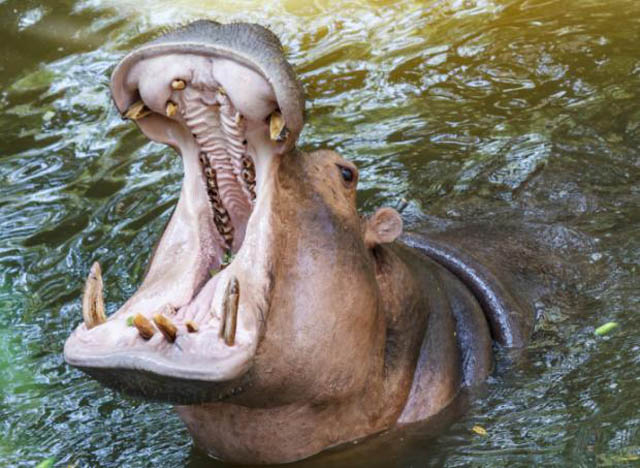
This one can be traced back to the Greek hippos (horse) + potamos (river). It likes to hang out in rivers, and while the Greeks might have been stretching things a bit by calling it a horse, at least they didn't go with porcopotamus.
5. RHINOCEROS, "NOSE HORN"
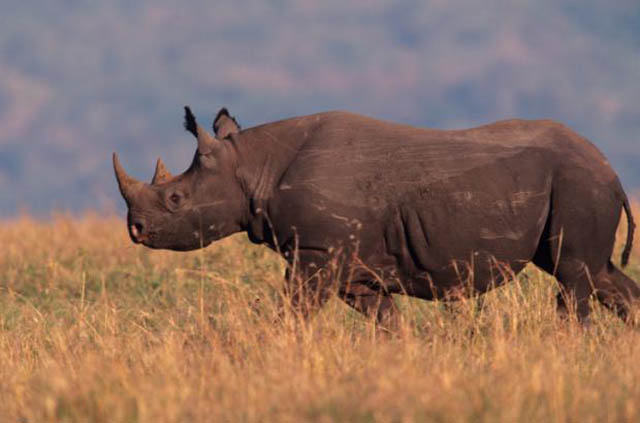
From the Greek rhino- (of or pertaining to the nose) and keras (horn, related to "keratin"). The nose horn certainly is the most noticeable feature of this animal. Let's hear it for sober, blunt description.
6. OCTOPUS, "EIGHT FEET"
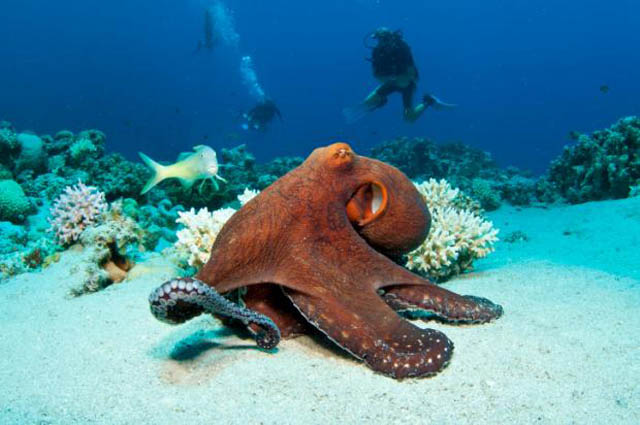
You already know the Greek octo- means eight from words like octagon. Pus (or pous) means foot, though we're used to seeing it in its combining form pod in words like podiatrist and tripod.
7. ORANGUTAN, "MAN OF THE FOREST"
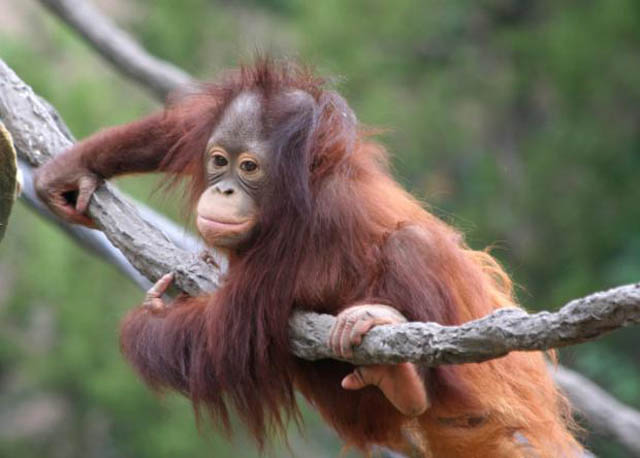
This comes from the Malay orang (person) + hutan (forest), meaning "person of the forest." Apparently the locals didn't originally call the animals orangutans, but Europeans somehow decided that this phrase referred to the furry orange apes. In any case, now there is a Malay word orang utan, meaning orangutan, alongside the native word mawas.
8. SQUIRREL, "SHADE TAIL"
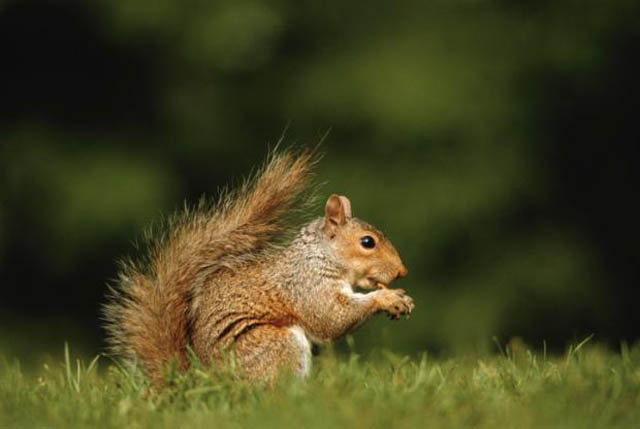
Squirrel goes back to Medieval Latin scurellus, a diminutive of scurius, which goes back to the Greek skia (shade) + oura (tail). Squirrels use their tails to shade their bodies, and you can often see them holding them up like tiny, fluffy parasols.
9. CHAMELEON, "DWARF LION"
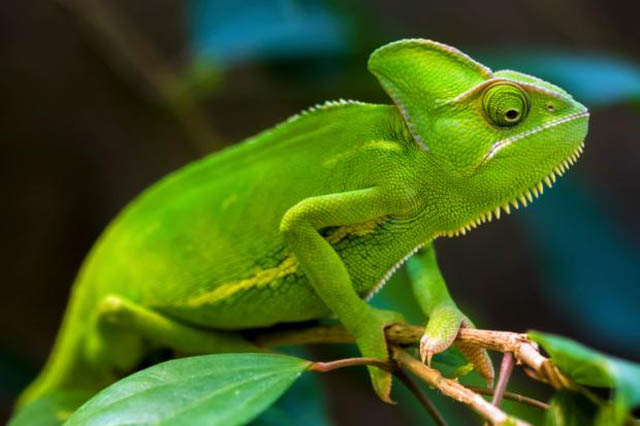
Goes back to the Greek chamai (ground) + leon (lion). Chamai could also mean dwarf, or "low to the ground," so a chameleon is a dwarf lion. Not sure if the lion connection was inspired by the chameleon's mane-like head outline or cool, regal disposition.
10. ARMADILLO, "LITTLE ARMORED ONE"

The most notable thing about the armadillo is his protective, spiky armor. We took the name from Spanish, where armado means armed. Armadillo is the diminutive of armado — so it means little, bitty armed one.
11. FLAMINGO, "FLAMING, FLAME-COLORED"

Latin flamma (flame) handed down its flam- to many words in Romance languages having to do with fire. Flamingo was formed in the Provence dialect, which would sometimes combine Latin roots (flam) with Germanic endings (–ing). The flamingo is flaming, or flame-colored. The ending used in Provençal was actually –enc, yielding flamenco, the current Spanish word for flamingo.
12. FERRET, "LITTLE THIEF"
Ferret can be traced back to the Latin fur, for thief. It picked up the diminutive -et in French (or -etto in Italian), giving us this name that means little thief. The name seems pretty appropriate, judging by this video titled "Ferrets Stealing Stuff Compilation 2013."
All images courtesy of Thinkstock.
Arika Okrent is editor-at-large at TheWeek.com and a frequent contributor to Mental Floss. She is the author of In the Land of Invented Languages, a history of the attempt to build a better language. She holds a doctorate in linguistics and a first-level certification in Klingon. Follow her on Twitter.
-
 Political cartoons for February 20
Political cartoons for February 20Cartoons Friday’s political cartoons include just the ice, winter games, and more
-
 Sepsis ‘breakthrough’: the world’s first targeted treatment?
Sepsis ‘breakthrough’: the world’s first targeted treatment?The Explainer New drug could reverse effects of sepsis, rather than trying to treat infection with antibiotics
-
 James Van Der Beek obituary: fresh-faced Dawson’s Creek star
James Van Der Beek obituary: fresh-faced Dawson’s Creek starIn The Spotlight Van Der Beek fronted one of the most successful teen dramas of the 90s – but his Dawson fame proved a double-edged sword
